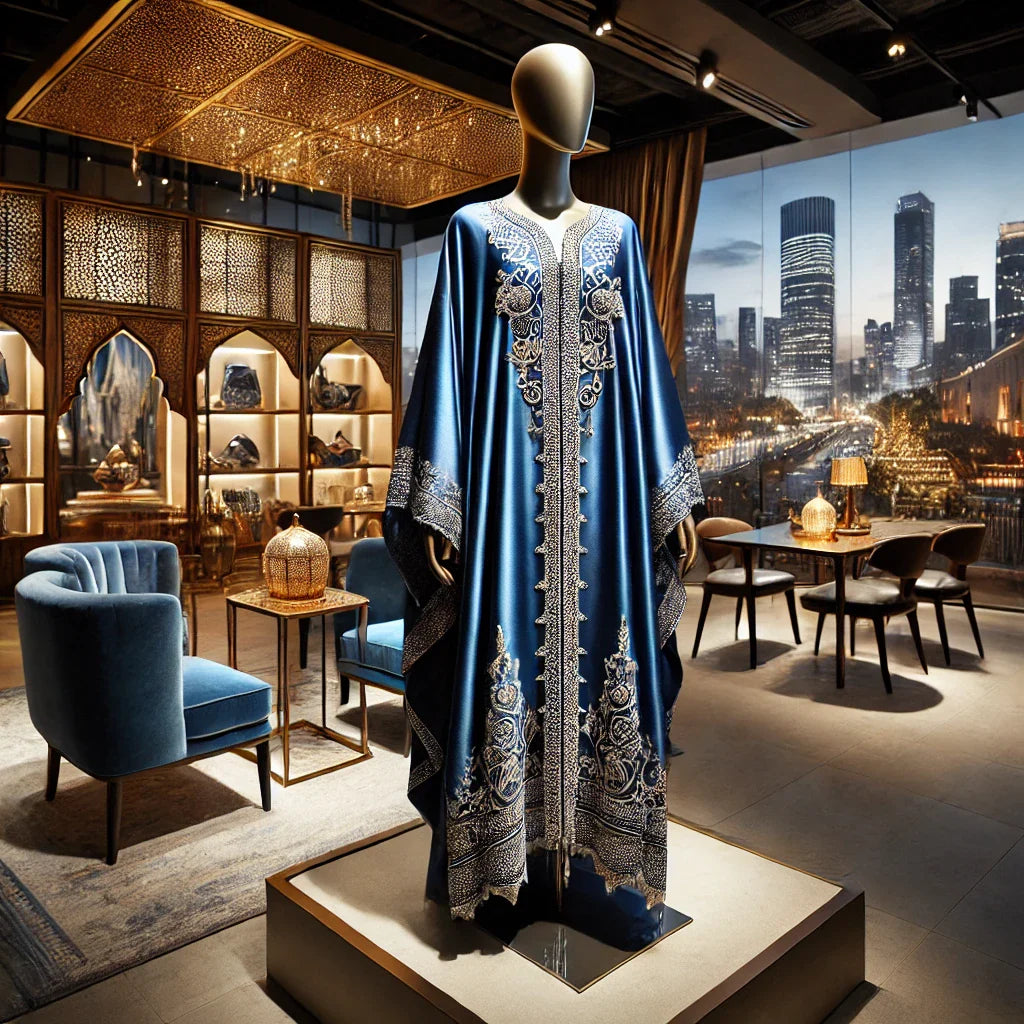
Does the caftan make you look fat?
The kaftan is an elegant and timeless garment, worn for centuries for its refinement and regal allure. Yet some women hesitate to wear it for fear that it will make them appear fuller. Is this misconception true, or is it simply a myth?
In reality, it all depends on the style, the cut, and the materials used. A kaftan can flatter any body shape if chosen well. Some flowing, fitted styles elegantly accentuate the silhouette, while others, too loose or poorly cut, can give the impression of volume.
So, how do you choose the right caftan to flatter your figure? What styles, colors, and materials should you choose to avoid the "too baggy" effect? This article gives you all the keys to wearing a caftan with confidence and elegance.
👉 Discover our Black Caftan collection and find the perfect model to refine and enhance your figure!
I. Why do some people think that the caftan makes you fat?
1. A loose fit that can add volume
The kaftan , by nature, is a loose and flowing garment. Some styles are designed to be loose, which can sometimes give the impression of extra volume, especially if the fabric is stiff or too thick.
👉 Choose a flowing and structured black caftan from our Caftan Noir collection!
2. The choice of materials: a significant visual impact
A flowing satin caftan flatters your figure by hugging your curves, while a thick or overly stiff fabric can create a fuller effect. Light, airy materials like chiffon or silk are ideal for an elegant look.
👉 Opt for a black caftan in light and flowing fabric with our Caftan Noir collection!
3. Real example: Samira's experience
Samira, a wedding guest, chose a thick velvet caftan adorned with rich embroidery. After looking at the photos, she realized that the cut and material gave her more volume. For her next occasion, she opted for a flowing silk caftan and loved the result!
👉 Find perfectly fitted models in our Black Caftan collection!
II. How to choose a caftan that slims the figure?
1. The ideal cut: fitted and adjusted
A caftan with a slightly fitted cut at the waist, or accompanied by a thin belt, allows you to refine the silhouette and avoid the "too wide" effect.
👉 Discover our belted black caftans in our Black Caftan collection!
2. Colors and patterns that slim
Black, navy, and dark shades have a natural slimming effect. Avoid overly large patterns or heavy embroidery around the waist and hips.
👉 Slim your figure with an elegant black caftan from our Caftan Noir collection!
3. Real example: Lina's trick
Lina loves caftans , but she was looking for a style that would slim her. She found a black caftan fitted at the waist, with vertical embroidery, which visually elongated her silhouette. The result? An elegant and refined look without compromising on comfort.
👉 Try our flattering models in the Black Caftan collection!
III. Mistakes to avoid to avoid weighing down your figure
1. Avoid loose, straight cuts
A loose, unstructured caftan can create the impression of extra volume. Opt for styles with a belt or a loose yet structured cut.
👉 Find a perfect balance between fluidity and structure in our Black Caftan collection!
2. Do not overuse imposing ornaments
Bulky embroidery and heavy beading can add an overwhelming feel. Opt for delicate, elegant details for a lighter effect.
👉 Adopt a refined style with a sleek black caftan from our Caftan Noir collection!
3. Concrete example: Amal and her overly ornate caftan
Amal chose a kaftan with heavy embroidery and voluminous sleeves for a ceremony. In photos, she noticed that the embellishments visually weighed down her figure. For her next event, she opted for a sleeker, more structured design, and the result was much more flattering!
👉 Discover elegant and balanced black caftans in our Caftan Noir collection!



Leave a comment
This site is protected by hCaptcha and the hCaptcha Privacy Policy and Terms of Service apply.